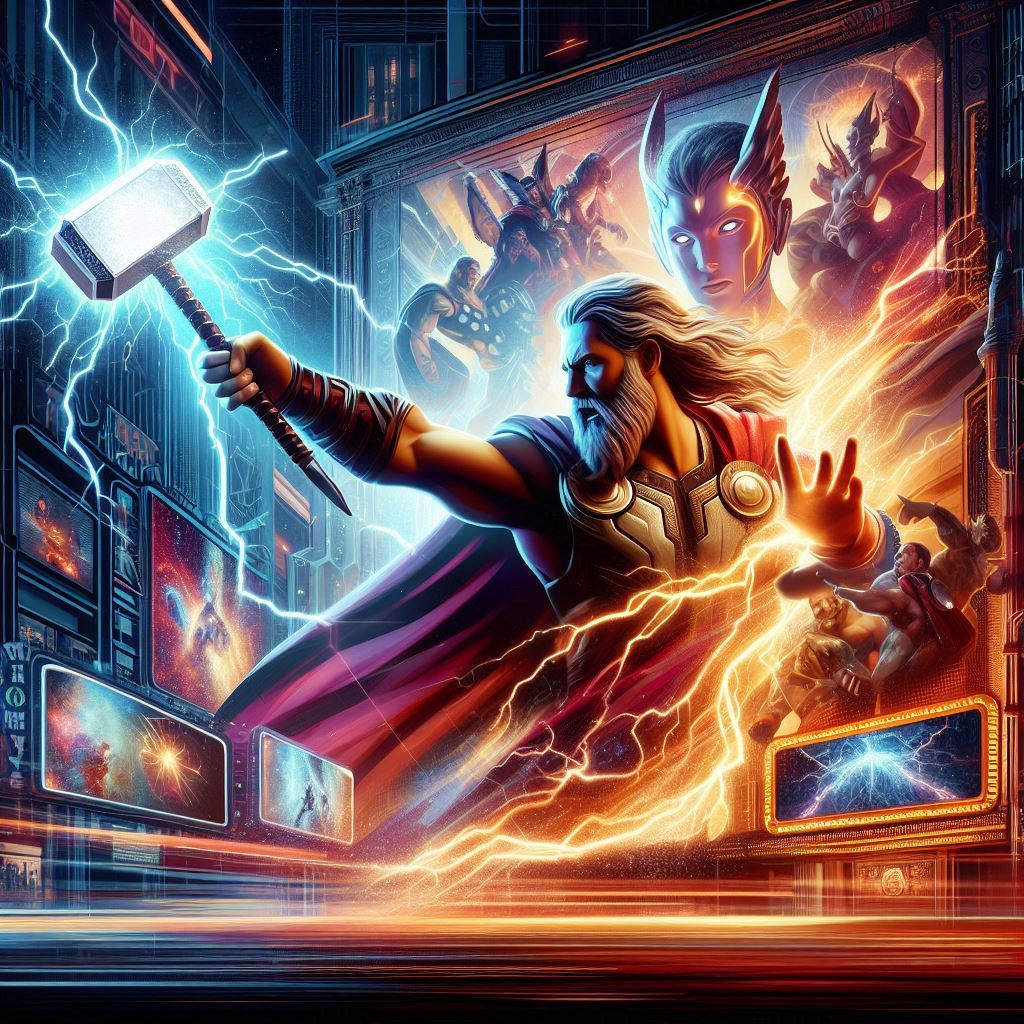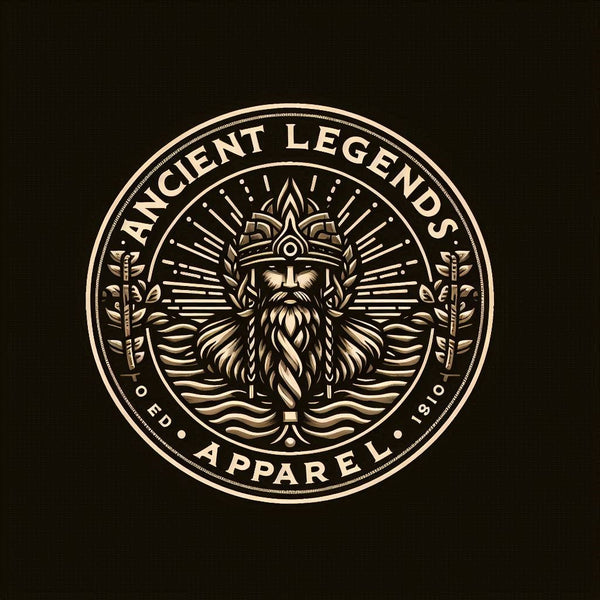
How Mythology Shapes Pop Culture: From Movies to Fashion Trends
Karl FinnbogasonShare
Mythology has long been a source of inspiration for art, literature, and storytelling. From the epic tales of Greek gods to the legendary warriors of Norse sagas, mythology continues to shape the world around us. In modern times, these ancient stories have been reimagined and retold in various forms, influencing movies, TV shows, video games, fashion, and even everyday expressions.
Mythology remains deeply embedded in pop culture, proving that these ancient tales are not just relics of the past but timeless narratives that continue to inspire creativity and identity in contemporary society.
The Influence of Mythology in Movies and Television
Hollywood has long drawn inspiration from mythology, using it as a foundation for some of the most iconic films and television series. Whether through direct adaptations or subtle thematic elements, mythology serves as a goldmine for storytelling, providing epic conflicts, larger-than-life characters, and timeless moral lessons.
Blockbuster Films Inspired by Mythology
- Marvel’s Thor Franchise – The Norse god of thunder, Thor, has been transformed into a superhero in Marvel Comics and movies. While his depiction differs from traditional Viking lore, elements such as Mjölnir (his hammer), Asgard, and Loki remain key components of the mythology.
- Clash of the Titans (2010) & Wrath of the Titans (2012) – These films bring Greek myths to life, showcasing gods like Zeus, Hades, and Perseus battling legendary creatures such as the Kraken and Medusa.
- Wonder Woman (2017, 2020) – Inspired by Greek mythology, Wonder Woman is depicted as an Amazon warrior with ties to Zeus and other gods, blending ancient myths with modern heroism.
- Percy Jackson & The Olympians (Upcoming Series) – Based on the best-selling book series, this adaptation follows modern-day demigods as they navigate a world filled with creatures and deities from Greek mythology.
- Disney’s Hercules (1997) – This animated classic retells the story of Hercules with a lighthearted and comedic approach while maintaining the core essence of Greek mythology.
Television Series with Mythological Themes
- Game of Thrones (2011–2019) – While not directly based on existing mythology, George R.R. Martin’s A Song of Ice and Fire series borrows heavily from Norse, Greek, and medieval myths, creating a world filled with dragons, gods, and legendary warriors.
- American Gods (2017–2021) – Based on Neil Gaiman’s novel, this show explores how ancient gods interact with modern society, adapting mythology for a contemporary audience.
- Vikings (2013–2020) & Vikings: Valhalla (2022–Present) – These series bring Norse mythology and history to life, showcasing legendary figures such as Ragnar Lothbrok and Harald Sigurdsson.
The Impact of Mythology on Video Games
The gaming industry has embraced mythology, using it as a foundation for world-building, characters, and epic quests. Video games provide an interactive way to engage with ancient myths, allowing players to step into the shoes of heroes and gods.
Popular Video Games Based on Mythology
- God of War Series (2005–Present) – Originally based on Greek mythology and later expanding to Norse myths, this franchise follows Kratos, a former Spartan warrior who battles gods and monsters in his quest for vengeance.
- Assassin’s Creed: Odyssey (2018) & Valhalla (2020) – These installments in the Assassin’s Creed series immerse players in Ancient Greece and Viking-era Scandinavia, incorporating mythology, legendary figures, and historical events.
- Hades (2020) – A critically acclaimed roguelike game where players take on the role of Zagreus, the son of Hades, as he attempts to escape the Underworld, encountering gods and mythological figures along the way.
- The Legend of Zelda Series – Drawing from various mythological traditions, this long-running franchise incorporates legendary artifacts, heroic quests, and divine beings.
- Smite (2014) – A multiplayer online battle arena (MOBA) game that allows players to control gods from different mythologies, including Greek, Norse, Egyptian, and Hindu pantheons.
Mythology in Fashion: From Runways to Streetwear
Mythological themes have also made their way into fashion, influencing everything from high-end designer collections to casual streetwear. Symbols, gods, and myth-inspired aesthetics continue to appear in clothing, jewelry, and accessories, reinforcing the timeless appeal of mythology.
Luxury Fashion and Mythology
- Versace – The brand’s iconic Medusa head logo is a direct reference to Greek mythology, symbolizing power, beauty, and intrigue.
- Dolce & Gabbana – Frequently inspired by Roman and Greek mythology, the brand has incorporated elements such as laurel wreaths, togas, and imagery of gods into its collections.
- Alexander McQueen – Known for incorporating mythological elements into avant-garde designs, McQueen often referenced Norse and Greek legends in his runway shows.
Streetwear and Mythological Symbols
- T-Shirts and Hoodies – Mythological imagery, such as Thor’s hammer, Valkyries, and Greek gods, is a common theme in streetwear brands, appealing to those who embrace mythology as part of their personal identity.
- Jewelry and Accessories – Norse runes, Mjölnir pendants, and Greek key patterns are frequently seen in fashion accessories, serving as both aesthetic and symbolic statements.
- Tattoo Culture and Apparel – Many people who get tattoos inspired by mythology also seek clothing that complements their symbolic body art, creating a blend of personal expression and historical reverence.
Why Mythology Remains Relevant in Pop Culture
The continued presence of mythology in modern media and fashion speaks to its enduring power. But why do these ancient stories still resonate today?
- Timeless Themes – Mythology explores universal themes such as love, betrayal, heroism, and destiny, which remain relevant to every generation.
- Personal Identity and Heritage – Many people feel a connection to their ancestral mythology and use it as a way to express their roots.
- Symbolic Power – Mythological figures and symbols carry deep meanings, representing strength, wisdom, or transformation.
- Escapism and Fantasy – Myths transport people to worlds of gods, monsters, and epic adventures, providing an escape from reality.
- Reinvention and Adaptation – Modern creators constantly reinterpret mythology to fit contemporary narratives, ensuring its continued relevance.
Mythology’s Everlasting Influence
From Hollywood blockbusters to video games, high fashion to streetwear, mythology continues to inspire and shape pop culture. These ancient tales, once told by firelight, now live on in digital screens, clothing designs, and artistic expressions.
Whether it’s the heroism of Thor, the wisdom of Athena, or the mystery of Medusa, mythology is not just a relic of the past—it is a living, breathing force that continues to define creativity and identity in the modern world.
As long as humanity seeks stories of courage, wisdom, and divine power, mythology will remain a vital part of our cultural fabric, influencing how we entertain, dress, and express ourselves for generations to come.
